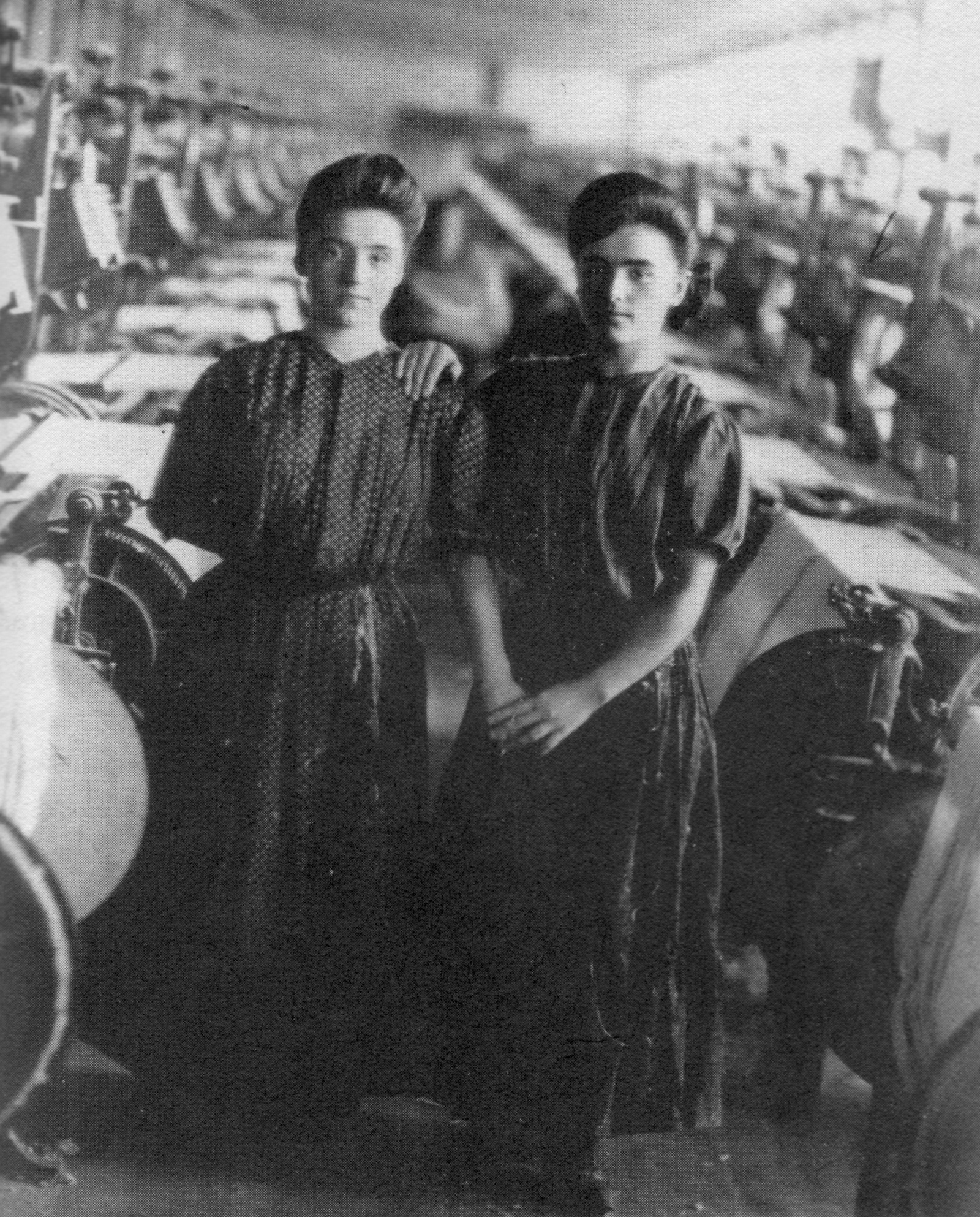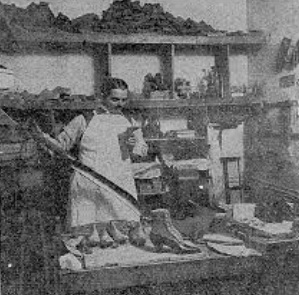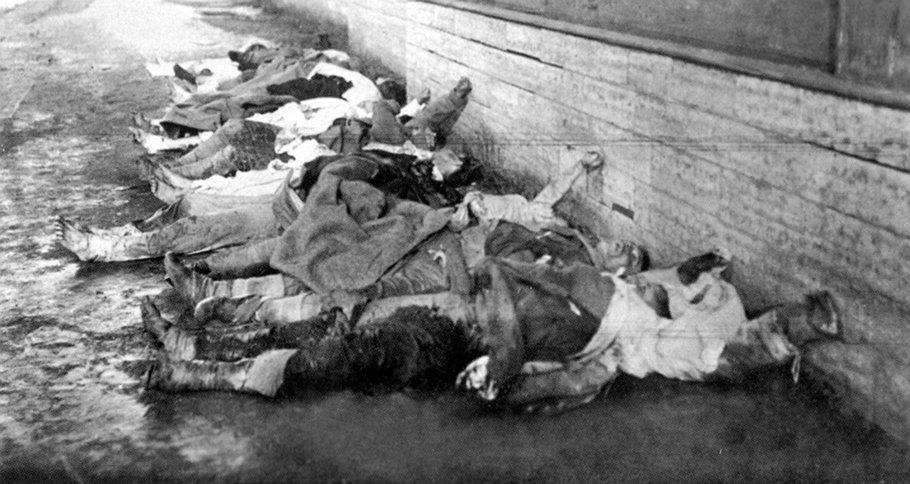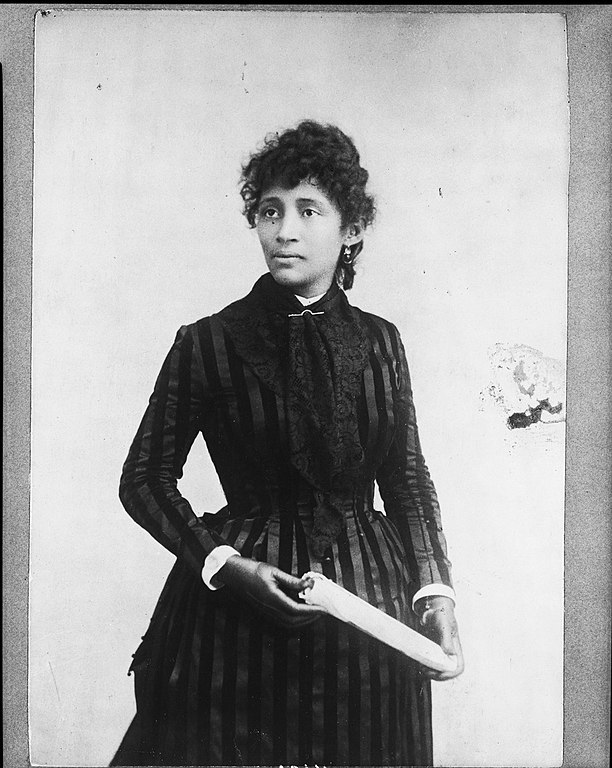1860s

Today in Labor History March 7, 1860: 6,000 shoemakers and 20,000 other New England workers participated in a mass strike in Lynn, Massachusetts, also known as the great New England Shoemakers Strike. It was the largest U.S. strike prior to the Civil War. Thousands of women marched through a blizzard carrying signs saying: “American ladies will not be slaves.” Republican presidential candidate Abraham Lincoln said, “I am glad to see that a system of labor prevails in New England under which laborers can strike when they want to, where they are not obliged to labor whether you pay them or not. I like a system which lets a man quit when he wants to, and wish it might prevail everywhere.” Within a month, shoe manufacturers offered higher wages to bring strikers back to the factories. However, they refused to recognize their union.

Today in Labor History March 7, 1868: The Knights of St. Crispin and the Daughters of St. Crispin organized to win regulation of machinery used in the shoe industry because it threatened handcrafted shoe makers. Shoemakers created the labor organizations in 1867, in Wisconsin. The Knights soon had over 50,000 members, but faded quickly in the 1870s due to poor organization. The union was also anti-Chinese, like the Knights of Labor.
1920s-1930s

Today in Labor History March 7, 1921: Select forces of the Red Army (commanded by Leon Trotsky) opened fire on the rebellious sailors, soldiers and workers of Kronstadt. The left-wing rebellion against the Bolshevik government began on March 1, and continued until March 18. The Bolshevik government forces killed over 1,000 Kronstadt rebels in battle, and executed another 2,100 in the aftermath. As many as 1,400 government troops died in their attempt to quash the rebellion. The rebels were demanding that soviet councils include anarchists and left socialists, the restoration of civil rights for workers, and economic freedom for workers and peasants.
Today in Labor History March 7, 1932: Over 3,000 people, led by the United Auto Workers, marched on the main Ford plant in Dearborn, Michigan. Workers on the Ford Hunger March were demanding that laid off colleagues be rehired. They also demanded a slow-down of the assembly lines and an end to the evictions of unemployed workers from their homes. Marchers carried banners saying “Give Us Work,” “We Want Bread Not Crumbs,” and “Tax the Rich and Feed the Poor.” During the protests, police opened fire with machine guns, killing 4 and injuring 60. A fifth worker died later from his wounds. The Unemployed Council (part of the Communist Party) also supported the march.
1940s-1960s


Today in Labor History March 7, 1942: IWW cofounder and anarchist labor organizer Lucy Parsons died on this date in Chicago, Illinois. Lucy Parsons was part African American and part Native American. Her mother had been a slave. In 1871, she married Albert Parsons, a Confederate soldier, in Waco, Texas. Soon after, they were forced to flee due to racism, moving to Chicago. There they participated in the Great Upheaval of worker rebellions that swept across the U.S. in 1877. They were also active in the movement for the 8-hour day and other worker movements.
The authorities executed Albert in 1887, along with several other anarchists, for the Haymarket bombing, even most hadn’t been there. In 1905, Lucy Parsons cofounded the IWW, along with Eugene Debs, Mother Jones, Big Bill Haywood and others. In 1915, she organized the Chicago Hunger Demonstrations. They were so effective that they pushed the AFL, the Socialist Labor Party and the Hull House to participate. In 1925, she participated in the International Labor Defense, which defended workers, communists, the Scottsboro Nine and others.
Today in Labor History March 7, 1965: “Bloody Sunday” occurred in Selma, Alabama, with state troopers attacking civil rights marchers. People had been protesting the disenfranchisement of African American voters. From January-February, 1965, the police arrested over 3,000 protesters. On February 26, the police murdered activist and deacon Jimmie Lee Jackson. In response, organizers planned a march from Selma to Montgomery.
1990s
Today in Labor History March 7, 1996: A crowd of 3,000 workers destroyed the Freeport copper mine facilities in Tamika, Irian Jaya (West Papua). They took this action after a company security guard ran over a member of the Dani clan. Protesters kept operations shut down and demanded an end to human rights violations, eco-terrorism and cultural genocide by the company. Overnight, the international price of copper jumped from $15 per ton to $2580 per ton.